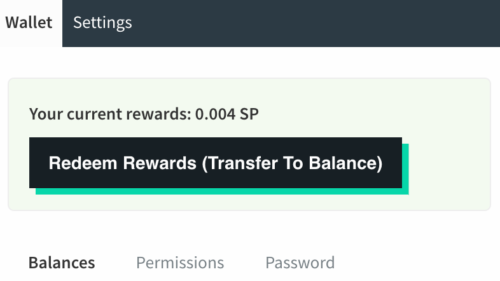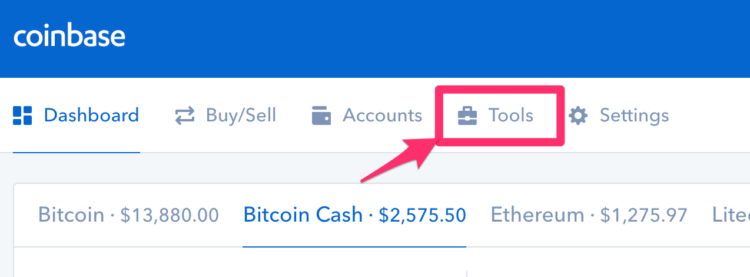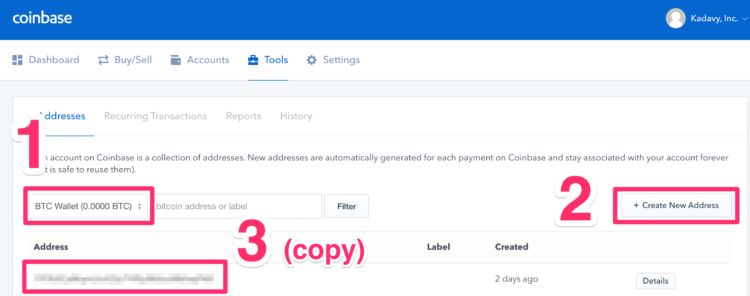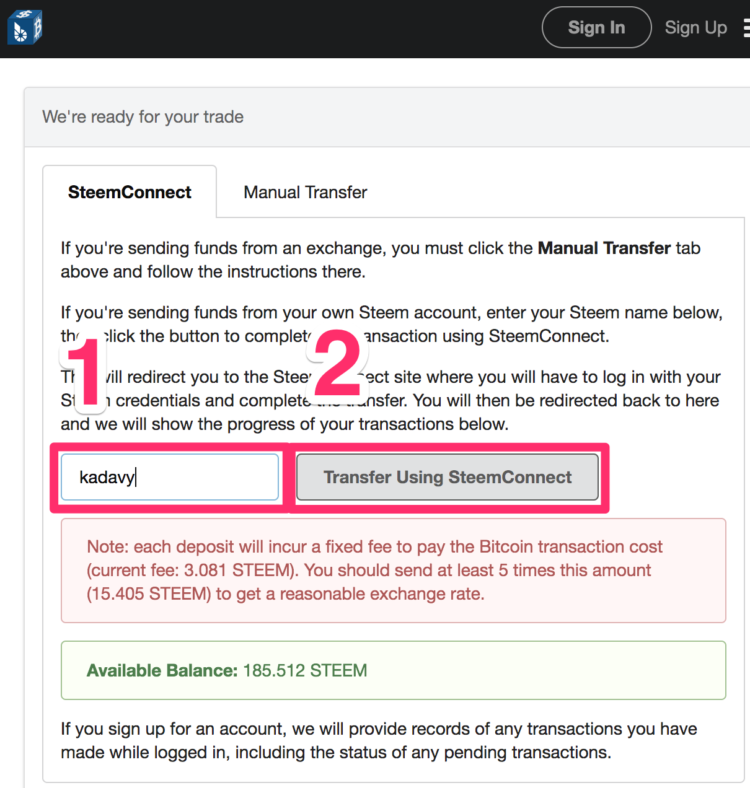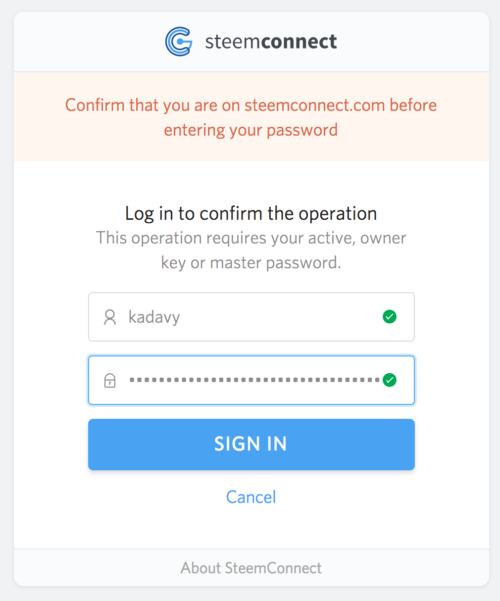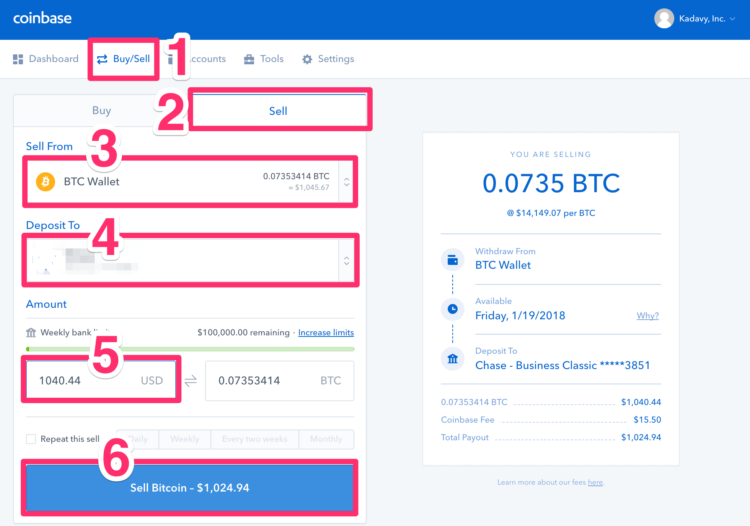Subscribe to blog updates via email »
A writer’s guide to making money on the STEEM blockchain – for beginners
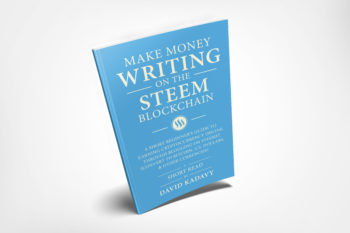 [UPDATE: June 4, 2018] Due to popular demand, this blog post – slightly updated and expanded – is now available in book form! You can find it on Amazon in Kindle, paperback, and Audible formats. In fact, you can get the Audible version for free if you’re a new customer.
[UPDATE: June 4, 2018] Due to popular demand, this blog post – slightly updated and expanded – is now available in book form! You can find it on Amazon in Kindle, paperback, and Audible formats. In fact, you can get the Audible version for free if you’re a new customer.
In today’s media climate of collecting and selling eyeballs with “rage porn” and fake news, there aren’t a lot of ways to make a living doing thoughtful writing. Books are the most honest exchange of money-for-words there could be, but in the months or years between releasing my books, I personally have found myself waiting for a payday. Then, I discovered STEEM, the cryptocurrency that powers the Reddit-like social network, Steemit.

WANT TO WRITE A BOOK?
Download your FREE copy of How to Write a Book »
(for a limited time)
I joined Steemit about a year ago, and it has turned into a decent revenue stream in my business as a writer and podcaster. In 2017, I earned a modest $2,000 on Steemit. But, things are picking up. Last week, I cashed in more than $1,000.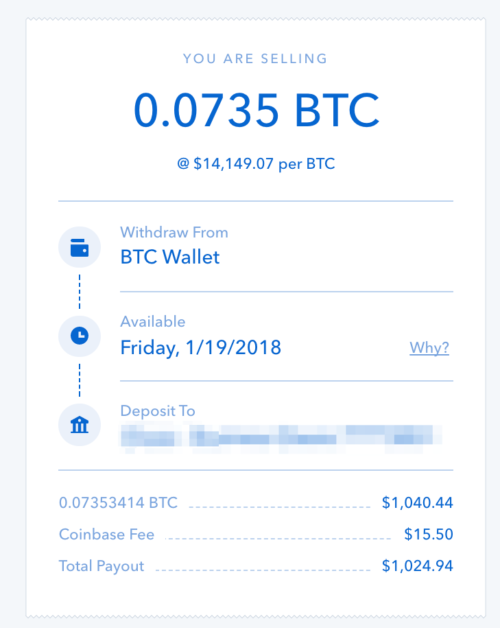
I also cashed in nearly $1,000 two weeks ago. So I’ve already come close to surpassing my 2017 STEEM earnings. My account is currently “worth” almost $12,000. (I’ll explain in a bit why these aren’t earnings yet.)
Where does this money come from, and how can you get started making money for your writing on Steemit? I hope to show you the basics in this post.
Before I get started keep the following in mind:
- It will never be easy to make money writing if you aren’t a good writer. Writing on Steemit will not get you rich quick. I have been working on writing and building my platform for fourteen years now, and I have been writing on Steemit for a year. Maybe you’re more talented than me, or can learn a way to do it faster, but I caution you that if you aren’t willing to put in the work, you will be wasting what time you do put in.
- The main criticism I hear about STEEM is that it’s f*cking confusing. This is correct, but it doesn’t mean it won’t work. Just watch the video of Good Morning America hosts trying to understand the Internet, and you’ll see that it’s possible for large groups of humans to learn to use and sometimes understand complex things. These are still the early days of this technology. It will get more user-friendly, and people will learn.
- I’m going to simplify things as much as possible to help you understand the minimum you need to know to start earning money on Steemit. If you’re like me, you’ll learn more by actually doing. There are lots of complexities built into STEEM to mimic the economic mechanics of the “real world.” Just as LeBron James doesn’t need to have a PhD in physics to play basketball – you don’t need to understand every last bit of how STEEM works to start earning money for writing on Steemit. If you want to get a deep understanding of how STEEM works, this is not the post for you. Start by reading the STEEM white paper.
- I’ll probably mess something up from a technical standpoint. Sometimes this will be intentional and okay because it will help beginners understand better. Remember, this post is a beginner’s guide to making money for writing on Steemit. Other times I may just plain be wrong (I’m not a trained software engineer, and I don’t keep up with every aspect of STEEM). I’m open to corrections in the comments.
- It’s possible to invest in the STEEM cryptocurrency. It’s also possible to invest your time writing on Steemit. You could lose all this money and all this time. This is not investment advice. Read this information, do your own research, and decide for yourself how to invest your money and time.
- If you join Steemit, follow me, and upvote my work, I will earn more STEEM. I tell you this to point out that it’s a potential source of bias. You also might decide that you’re grateful for this beginner’s guide to Steemit, and you want me to earn more STEEM. It’s up to you.
Where does the money you earn on Steemit come from?
The question I usually get asked first when talking about STEEM is “where does the money come from?” The short answer is that STEEM is a cryptocurrency, like Bitcoin, that investors trade on the open market, and which you can track the value of through charts. When I joined Steemit, the price of STEEM was about 14 cents. Recently, it has jumped as high as over $7. With many cryptocurrencies climbing lately, you can imagine how valuable STEEM could become.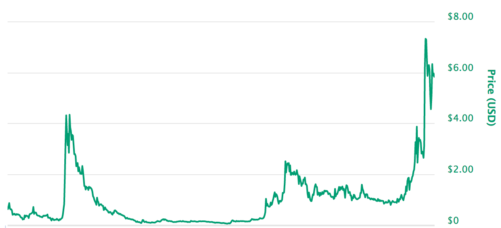
The long answer to where the money comes from is that STEEM is a cryptocurrency built on blockchain technology. Steemit is a social network built upon that blockchain. The STEEM blockchain is a database that holds all of the posts, comments, upvotes, and transactions of STEEM. Part of what gives STEEM value is people trading it on the open market. But, as you’ll see, STEEM has inherent value within the Steemit social network. Let me explain those pieces in more detail.
STEEM is a decentralized blockchain (here’s what that means)
The STEEM blockchain does not live on a server like, say, Facebook’s database. That would be what you’ve probably heard referred to as a “centralized” model. Facebook owns and controls the database, and could delete it all tomorrow if they felt like it.
Instead, computers around the world have copies of the STEEM database and compare it to each other to make sure it’s up-to-date. This is what you’ve probably heard referred to as a “decentralized” model. No one entity controls the information.
Because of this, this database cannot be censored, which some people believe to be a big problem on networks such as Twitter or Facebook. Anyone can develop software for the STEEM blockchain, which is why a site such as Busy.org is an exact copy of what you’ll see on Steemit. (I’ll be referring to STEEM as the cryptocurrency and Steemit as the network for this post.)
Steemit, like all social networks, is built by the community
Social networks such as Twitter, Facebook, and Steemit are collective projects, like big gardens. Tweets are tweeted and retweeted; Facebook Groups are built, posts are liked, and communities mature; and Steemit articles are shared, upvoted, and commented upon. These networks get more valuable as more people use them, just as a huge garden will bear more food as people plant seeds, water plants, and pull weeds.
Who owns these collective projects? In the case of Twitter and Facebook, they are owned by shareholders. If Steemit is a community garden, Twitter and Facebook are sharecropping plots. Users of Twitter or Facebook are “compensated” for their contribution to the projects solely through their enjoyment of the platform, or whatever they can do to squeeze money out of the eyeballs they capture on the platform. Because of these incentives, Twitter and Facebook need to find a way to fund the development and upkeep of these platforms. That is primarily done by selling advertising.
In the case of Steemit, the collective project is owned in part by the users. You may already know that the Bitcoin cryptocurrency is mined by huge computers burning lots of electricity to solve complex equations. STEEM is instead mined by actions taken within the social network. When a post is published, upvoted, or commented upon, STEEM is created and distributed amongst contributors.
You can earn STEEM for writing a post, or commenting on a post. You can also earn STEEM simply for upvoting a post: The earlier you upvote a post that later gains a lot of upvotes, the more you earn as a “curator.” When you see an estimated dollar amount on a Steemit post, that is the amount of STEEM (in USD) that will be distributed to the author and curators. Developers can also earn STEEM when people use their applications.
When you earn STEEM, it’s not necessarily immediately spendable. In fact, there are different types of what I will refer to as “STEEM” from here on. Don’t stress if you don’t understand this explanation the first, the second, or the tenth time around, because this is where it gets more complicated.
STEEM Power helps you earn more STEEM
The first thing you can earn is STEEM Power, which increases your influence within Steemit. If you have a lot of STEEM Power, you earn more STEEM (in all forms) for your posts and upvotes. When you upvote a post, it also causes the author of that post – and everyone who upvoted it before you – to earn more money than otherwise, because an influential user (you) have upvoted the post.
As you can see, STEEM Power is important, and…powerful. The catch is that you can’t immediately spend STEEM Power. You have to do what’s called a “power down.” Your STEEM Power is converted into spendable STEEM Tokens. At the time of this writing, when you power down, you receive one-thirteenth of your STEEM Tokens every week for thirteen weeks (it used to take two years).
This is why you saw me cash in about $1,000 worth of STEEM Tokens. I had just received a distribution from a power down. This is also why my total “account value” is not yet earnings. All of my account value is locked up in STEEM Power.
Notice that you can’t spend STEEM Power, but STEEM Power is important to your influence within Steemit. This will be relevant in a bit as you understand where the money comes from.
STEEM Tokens are immediately spendable
The second thing you can earn is STEEM Tokens (which are generally referred to as simply “STEEM,” but remember, I’m currently using that term as a catch-all for all forms of STEEM). You can immediately spend STEEM Tokens. There aren’t many things I know of that you can buy directly with STEEM Tokens, but you can exchange them for other cryptocurrencies, such as Bitcoin (which you can then convert to U.S. Dollars or other currencies, which I’ll explain later).
You can also do a “power up” to convert your STEEM Tokens into STEEM Power. Doing this of course increases your network influence, but it also makes your STEEM unspendable until you do a “power down.”
STEEM Dollars (SBD) can be spent to promote posts
The third thing you can earn is STEEM Dollars, or SBD. Like STEEM Tokens, you can convert SBD to other cryptocurrencies (then to U.S. Dollars). You can also spend SBD to “promote” posts on Steemit, which gets them more exposure, in turn earning more STEEM. You can also hold SBD in savings – sometimes with interest – on your Steemit account.
Originally, STEEM Dollars were meant to be a stable currency, always worth $1 USD. Lately it has spiked as high as $13, and at the time of this writing it’s around $8. Apparently it’s due to it being listed on the Korean UpBit exchange.
STEEM has value because it’s useful in the Steemit network
So, where does the money come from? STEEM Tokens and SBD are both traded on the open market. STEEM Tokens and SBD also have inherent value within the Steemit network. STEEM Tokens can be converted into STEEM Power for more network influence, and SBD can be spent to promote posts within the network. Both of these actions help people make more STEEM (in all forms).
STEEM represents the value of the collective project that is Steemit. STEEM has inherent value within the Steemit network. This all works together in a virtuous cycle to help STEEM maintain value.
In the garden that is networks like Facebook or Twitter, users have to live off of the crops grown – what’s leftover after Facebook and Twitter take their cut, anyway. Those gardening in the community garden that is Steemit share the food, and can also sell some of it at the Sunday-morning Farmer’s Market.
How do you earn STEEM?
Don’t be frustrated if you still don’t understand what I’ve explained so far in this beginner’s guide. The best way to learn is to simply join and try using Steemit. Now that I’ve provided a beginner’s background on STEEM and Steemit, I’ll explain how you can earn STEEM for your writing, and convert it into the currency of your choice.
As described earlier, you earn STEEM each time you:
- Post content, such an article (75% of a post’s earnings go to the author).
- Comment on a post.
- Earn upvotes for a post or comment.
- Upvote a post or comment (25% of earnings are shared amongst “curators” who upvote).
Upon joining, you’ll be “delegated” a bit of STEEM Power to get you started (This means you can’t power down that STEEM Power, but it will help you earn more STEEM). To join, you’ll have to verify your email address and a phone number that can receive SMS messages. Accounts are still approved manually, so it may take a few days for your account to get approved. So, it’s best to join as soon as possible.
I can’t stress enough that this is not a path to quick riches. It is, however, a way for writers to earn money for the value they create within a community, rather than having to attract eyeballs for the sake of eyeballs. There are always going to be barriers to making it as a writer, and not all of those can be knocked down by new economic models such as Steemit. If you want to make money writing on Steemit, it will be hard work.
A note about NSFW
Steemit is a community where just about anything goes. By default NSFW posts will be hidden, and you can view them by clicking. I personally prefer to not see these posts in my timeline at all – I’m working after all. You can disable NSFW content under Settings > Private Post Display Settings, and set the drop-down to “Always hide.”
Post articles according to tags
Content on Steemit is organized by tags. Since the main timeline is crowded with a variety of topics, many users will look for content on a particular tag, similar to how Reddit users hang out in a particular subreddit.
You can see a listing of exactly how many posts have been issued to the top tags, and exactly how much STEEM has been earned on said tags over here.
You’ll also see the most popular tags on the left-hand side of the Steemit home page. At the time of this writing, the most popular tags are: life, photography, and steemit. Naturally, this model causes a bias toward STEEM and other cryptocurrency-related content, but there is plenty of STEEM being earned in other topics.
The tags you choose for your posts will greatly affect their exposure. When you’re starting out, you want to choose tags that actually have some volume, but aren’t so popular that it’s impossible for your work to get noticed.
Just because you don’t see a tag listed on the tags page, doesn’t mean it’s not worth writing on that topic. Just type in steemit.com/trending/[tag name] for whatever topic you might want to write about. Chances are you’ll see some level of activity. A couple of my favorite topics to write for – entrepreneurship and productivity – don’t show up on the tags page, but still have plenty of activity. I’ve even had a reader tell me he discovered my work on the entrepreneurship tag.
Write an introduceyourself post
Soon after joining Steemit, you should write an introduceyourself post on the introduceyourself tag. If you do this well, this will be the easiest STEEM you make early on.
I would advise taking a picture of yourself with something that says “hello Steemit,” and has the date on it. If you’re notable (or really, really good-looking), you should also share the link to your introduceyourself post on your social media accounts such as Twitter or Facebook, so people can verify it’s really you. Here’s my introduceyourself post, and the current most popular introduceyourself posts.
STEEM rewards come in after seven days
At the bottom of your posts, you’ll see a dollar amount. That is the amount of STEEM, in USD, that your post has earned.![]() Early on, this will be a very small amount. You can see that some posts make hundreds or thousands of dollars. 75% of this will go to the post author (you), and 25% of it will go to people who upvote it.
Early on, this will be a very small amount. You can see that some posts make hundreds or thousands of dollars. 75% of this will go to the post author (you), and 25% of it will go to people who upvote it.
After seven days, you’ll earn your rewards for your post.
Your rewards don’t transfer to your wallet until you click this “Redeem Rewards” button. You can see ahead of time how much you’ll be earning. “SP” stands for STEEM Power, and “SBD” stands for STEEM Dollars.
I find this reward claiming process useful for accounting purposes. If you’re writing on STEEM as a business, keeping track of earnings can be difficult. I won’t get into the complexities of it, but I treat any cryptocurrency in my business like a hot potato: I convert STEEM to Bitcoin, then to USD, as fast as possible to make accounting simple. Still, I record receipt of these reward redemptions and Bitcoin transactions in a spreadsheet, just in case I need this information in the future. (Since it’s not spendable, I don’t count STEEM Power as earnings – until it’s powered down to STEEM Tokens, of course. Check with your tax professional.)
Build STEEM Power first. Power down later.
Early on, you’ll have very little STEEM Power, so earning more STEEM will be slow going. But, the more STEEM Power you gain, the more STEEM (of all forms) you can earn. This is why I recommend doing 100% power-ups on every post when you’re just starting.
While composing a post, you’ll see a drop-down menu. This is where you can choose how you’ll be paid (or whether you’d like to be paid at all). The default will be to get paid in 50% STEEM Power, and 50% SBD. I recommend choosing “100% Power Up,” to gain STEEM Power and increase your future earnings.
Just how long you’d like to keep doing this is up to you. You’ll gain a feel for how soon you’d like to collect earnings, or how badly you need more STEEM Power to increase your earnings. Remember you can always power down through the drop-down menu in the “Wallet” section of your account.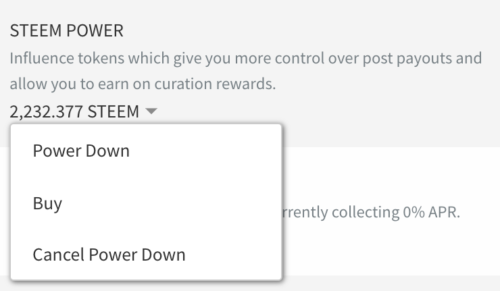
Approximately one-thirteenth of your STEEM Power will be converted to STEEM every seven days, until you cancel the power down. As you gain STEEM Power so that you’re actually earning, this presents a balance you have to strike: Do you want spendable SBD now, or do you want more STEEM Power, which will help you earn more, but which is not spendable without waiting for a power down?
You can buy STEEM Power
If you’re impatient to get some STEEM Power so you can actually earn more STEEM, you can buy STEEM Power (or STEEM). This is not investment advice. You run the risk of losing all of your money. If you decide you want to do this, you can click on the “Buy STEEM or STEEM Power” button in the “Wallet” section of your account.
STEEM politics
As you would expect in any money-making venture, people are always trying to game the STEEM system to make as much money as possible. A big issue within STEEM is that there are many “minnows” (people with little STEEM Power, and thus little influence, and little ability to earn more STEEM), and there is a smaller group of “whales” (people with lots of STEEM Power, and thus lots of influence, and lots of ability to earn more STEEM for themselves, and anyone they upvote).
You’ll see lots of bot activity on Steemit. You’ll also see a fair amount of pointless comments for the sake of trying to earn more STEEM, or requests to follow to build one’s network. I don’t participate in or think about these tactics. My strategy is just to keep doing my best writing, and to share it. My posts have begun to be upvoted by whales more often, and that makes a big difference in how much I earn.
The one tool that I do find useful is called Streemian (Streemian unfortunately shut down!). You can could use it to syndicate an RSS feed, schedule posts, or automatically upvote the posts of a member through their “Fanbase” feature.
How do you convert STEEM into U.S. Dollars?
Once you have earned some STEEM or SBD, you might want to convert it into the currency of your choice – in my case, U.S. Dollars.
You can’t convert STEEM into USD directly, but you can convert it into Bitcoin, which can then be converted into USD. Here’s how to do it with a Coinbase account. If you don’t use Coinbase, I assume you’re technically savvy enough to figure this out, whether with these instructions or not.
If you do not have a Coinbase account, you’ll get $10 of free Bitcoin – and my business’s account will, too – when you make your first $100 purchase of Bitcoin, if you sign up through this link. Again, you run the risk of losing all of that $110. This is not investment advice.
Get your receive address from Coinbase
First, you’ll need to generate a deposit address for receiving your transfer from your Steemit account.
In your Coinbase account, go to Tools > Addresses.
- Choose “BTC Wallet” from the drop down.
- Click on “+ Create New Address.”
- Select and copy the address.
Transfer your STEEM to Coinbase using BlockTrades and SteemConnect
Next, you’ll be using the receive address you copied from Coinbase to transfer your STEEM to Coinbase.
First, visit blocktrades.us.
- Choose STEEM or SBD in the “Send” drop-down.
- Choose Bitcoin in the “Receive” drop-down.
- Enter the amount of STEEM Tokens or SBD you want to send.
- Paste the receive address you copied from your Coinbase account into the form marked “Your receive address.”
- Click on “Get a new Deposit Address.”
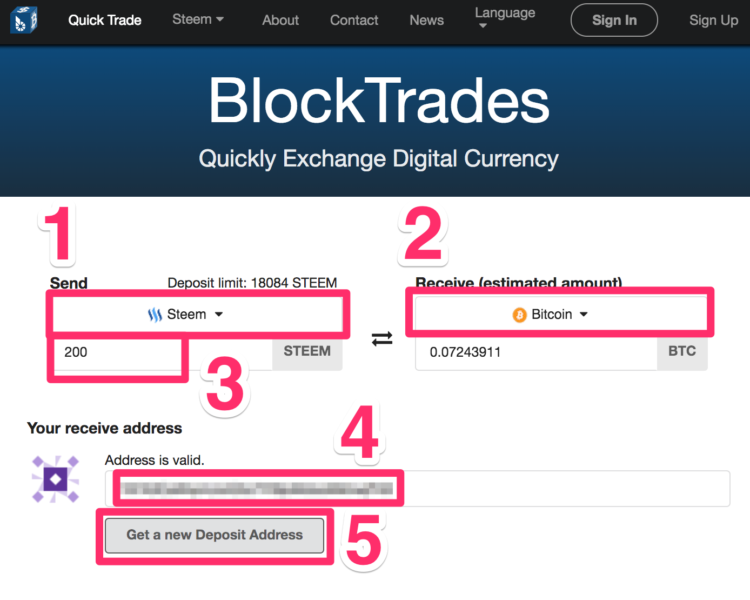 You’ll see a “We’re ready for your trade” box, with a “SteemConnect” tab selected.
You’ll see a “We’re ready for your trade” box, with a “SteemConnect” tab selected.
- Enter your Steemit username in the form.
- Click on “Transfer Using SteemConnect.”
You’ll see a SteemConnect confirmation page. Click on “Continue.”
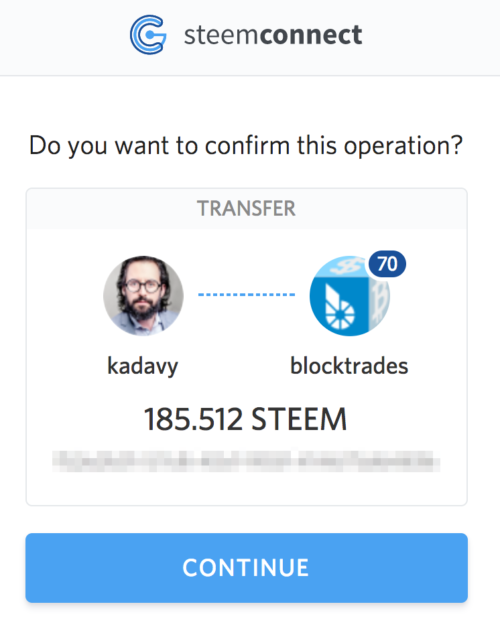
You’ll have to login (using the same username and password you use on Steemit.com). You’ll see a message to confirm that you are on steemconnect.com (by looking in your address bar) to prevent a potential spoofing attack.
After logging in and seeing the transaction go through, look in the “Wallet” section of your Steemit account. You should see the transaction listed under “History.”
You’ll also get a confirmation email from Coinbase, telling you how much BTC you received for your STEEM, and the current value in USD.
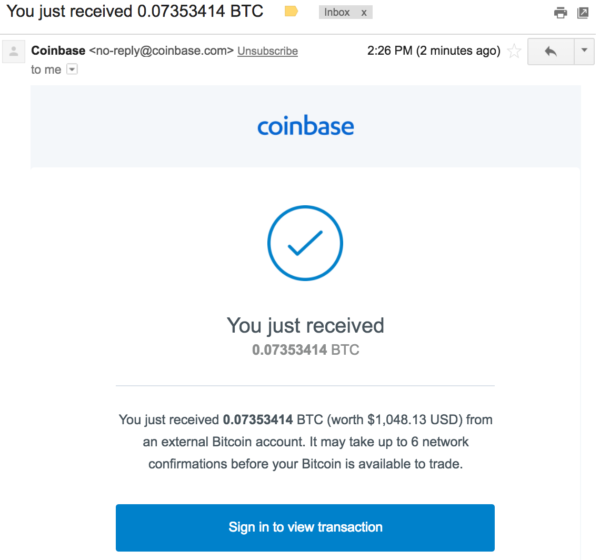 Within a few hours, you should see the Bitcoin in your Coinbase account. Remember, this can take a few hours, so don’t panic if it’s not there right away!
Within a few hours, you should see the Bitcoin in your Coinbase account. Remember, this can take a few hours, so don’t panic if it’s not there right away!
Once you see Bitcoin in your Coinbase account (remember, it can take awhile!), you can sell the Bitcoin and transfer to your bank account.
- Click on “Buy/Sell.”
- Click on the “Sell” tab.
- Choose “BTC Wallet” from the “Sell From” drop-down menu.
- Choose your bank from the “Deposit To” drop-down menu.
- Enter the amount you’d like to transfer. I usually click the “Sell Max” button that appears in the field.
- Click on “Sell Bitcoin.”
You’ll see a confirm transaction page. Click on “Confirm Sell.”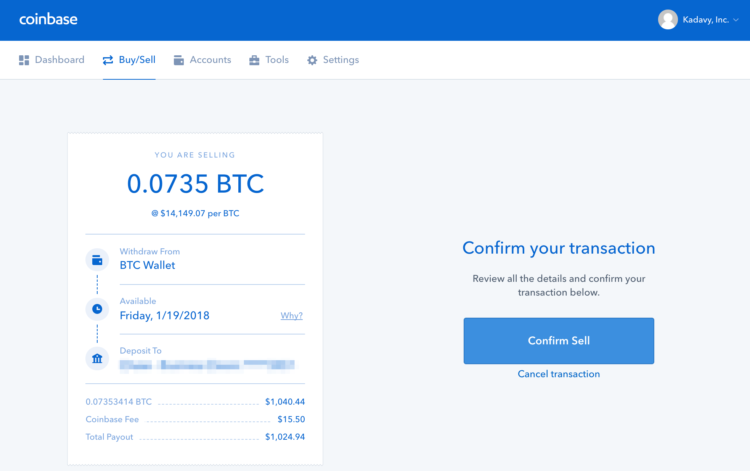
You’ll see a success page. Your Bitcoins are being sold, and the U.S. Dollars are being deposited into your bank account. This may take an entire week.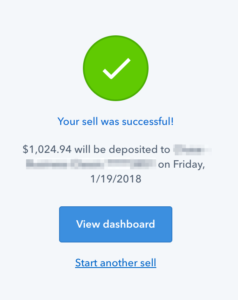
But what about…?
With how much Bitcoin has gone up in value, it’s tempting to worry about gains I might be missing out on (and the gains I’ve missed out on from past transactions). I could also worry about money I’m losing through transaction fees. I try not to think about this. I’m simply trying to get paid for my writing, not for holding cryptocurrencies. Transaction fees are a cost of doing business.
In my experience, dwelling on things like this is one of many ways to paralyze yourself and keep you from acting. (I think about this kind of thing a lot, which is why I wrote my latest book, The Heart to Start). Ultimately, it’s up to you, but don’t let complex concerns get in the way of action.
Go forth and make money on Steemit
If you’re a writer or creator who is frustrated with the economics ruling your work, STEEM is incredibly exciting. Yes, it’s complicated, and yes, it’s still hard to earn money. But, I’m confident this, or something like this, is the future of compensation in media.
I hope this beginner’s guide to STEEM and Steemit helps. Join Steemit, write your introduceyourself post, and follow me, if you so wish.
Further resources on STEEM and Steemit
- My podcast conversation with Steemit CEO Ned Scott.
- STEEM white paper.
- Steemit FAQ.
- A podcast conversation where at least one side (Tone Vays) is critical of STEEM and Steemit (calling it a scam and ponzi scheme).


